After the eight-year War of Independence ended in 1784, the colonists were finally free! Well, I suppose they weren’t colonists any longer; they were citizens of a brand new country. But they were free!
They were free from tyranny. Free from taxation without representation. Free from the hated Redcoats! And free from a host of other problems: both real and imagined.
But what were they free to do? They were free of military oppression and free to operate their own businesses. What else were the colonists – I mean, Americans – free to do?
Political freedom was a major item. Not desiring any over-arching government, they wouldn’t bow to any state but their own. This was a problem because there were thirteen new governments to consider. So, the former colonies – now sovereign states – agreed to a limited government under a federation called The United States of America. To them that actually meant The United Countries of America.
They were free to tax themselves with “in-house” representation. That was a fight! The local towns didn’t want the states to tax them, and the states didn’t want the feds to tax them. They were also free to print their own money. Oops … that didn’t work too well. Each state created its own currency, with some states having several currencies. Banks issued their own money, and by 1836 over 1,600 banks were issuing thousands of varieties of paper money. Many of them were not “worth a continental.” Amazingly, standardized currency was not established until 1929.
How about freedom of religion.
In order to have a workable government, compromises are made. However, these concessions need to be in the civil arena; not in matters of faith. In colonial legislation, Thomas Jefferson said in the Virginia Statute for Religious Freedom (written in 1779):
“No man shall be compelled to frequent or support any religious worship, place, or ministry whatsoever … nor shall otherwise suffer, on account of his religious opinions or belief; but that all men shall be free to profess, and by argument [discussion] to maintain, their opinions in matters of religion, and that the same shall in no wise diminish, enlarge, or affect their civil capacities.”
Jefferson made sure the First Amendment carried the same idea: “Congress shall make no law respecting an establishment of religion or prohibiting the free exercise thereof….”
President Eisenhower said on January 20, 1953, “History does not long entrust the care of freedom to the weak or the timid.” And on November 25, 1981, the United Nations General Assembly passed the “Declaration on the Elimination of All Forms of Intolerance and of Discrimination Based on Religion or Belief.” (This was, however, controversial.)
With that in mind, why is our government prohibiting the free exercise of the Christian religion? Why are we disregarding our religious freedoms that are protected in our own national documents? I am referring, of course, to openly reading and teaching from the Holy Bible.
When Scripture teaches that marriage is between a man and a woman, why do we cower before those who disagree? Why does our government pressure us to turn our back on our faith and turn against the Bible? Without a constitutional amendment, Congress does not have the right to revoke our constitutional rights of freedom of speech and freedom of religion and deny my right to preach the truth as found in Scripture. I don’t hate homosexuals; I have worked alongside several, and some of my friends are homosexuals. There is no hate involved when I tell them that the Bible teaches against homosexuality. It’s a statement of fact. But hate is involved when “gay” people angrily hurl insults and epithets at me.
It is unconstitutional, immoral, and unethical to allow the LGBTQIA2+ person first amendment rights yet disallow those with traditional Biblical beliefs the same rights. Everyone should have the freedom to speak their mind in the same way without fear of reprisal. And whoever dares to limit or eliminate one person’s freedom does damage to everyone’s freedom.
Proverbs 25:26 says, “A good person who gives in to evil is like a muddy spring or dirty well.”
Christians have the same guaranteed, blood-bought, constitutional freedoms to teach and worship according to conscience, and to express our beliefs as does anyone else – including the right and obligation of teaching the Biblical view of life. To deny that freedom would be discrimination, bigotry, intolerance, and anti-American. And remember, even the UN denounces intolerance – at least, on paper.
So respect those with whom you disagree; live according to Scriptural principles; and give thanks for our national and religious freedoms.




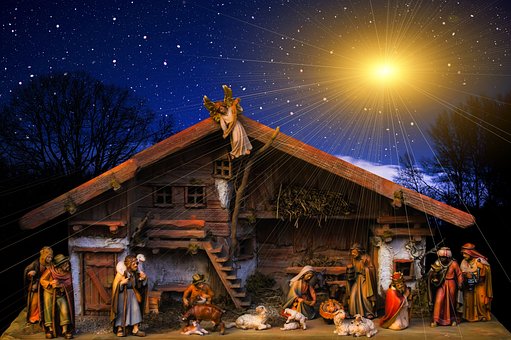

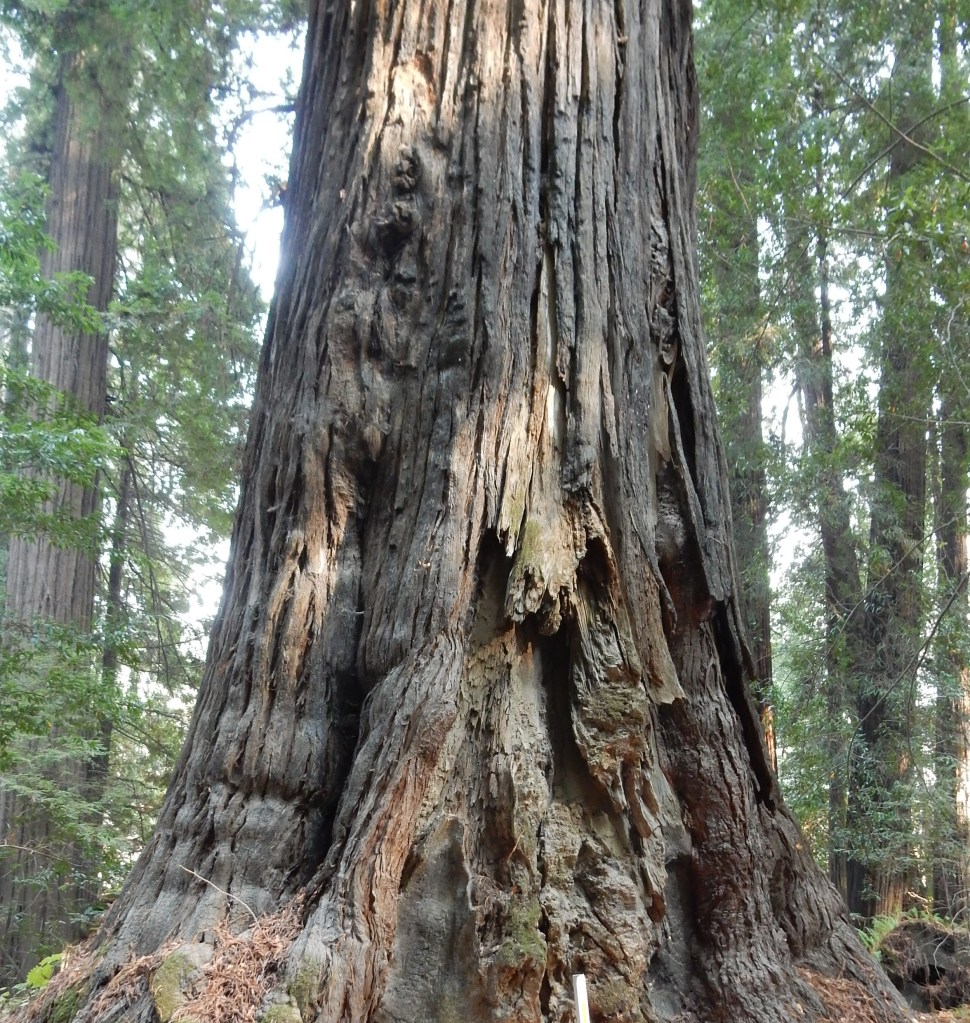

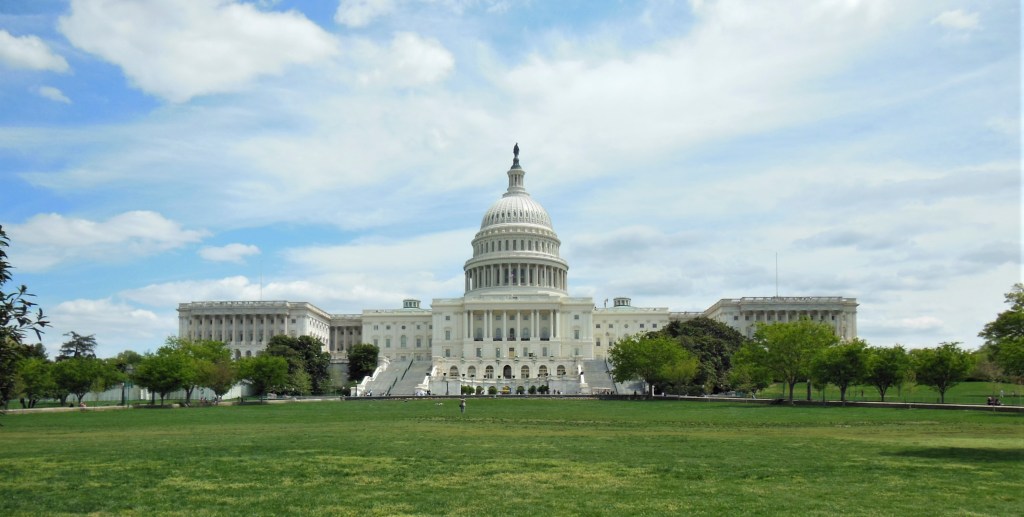
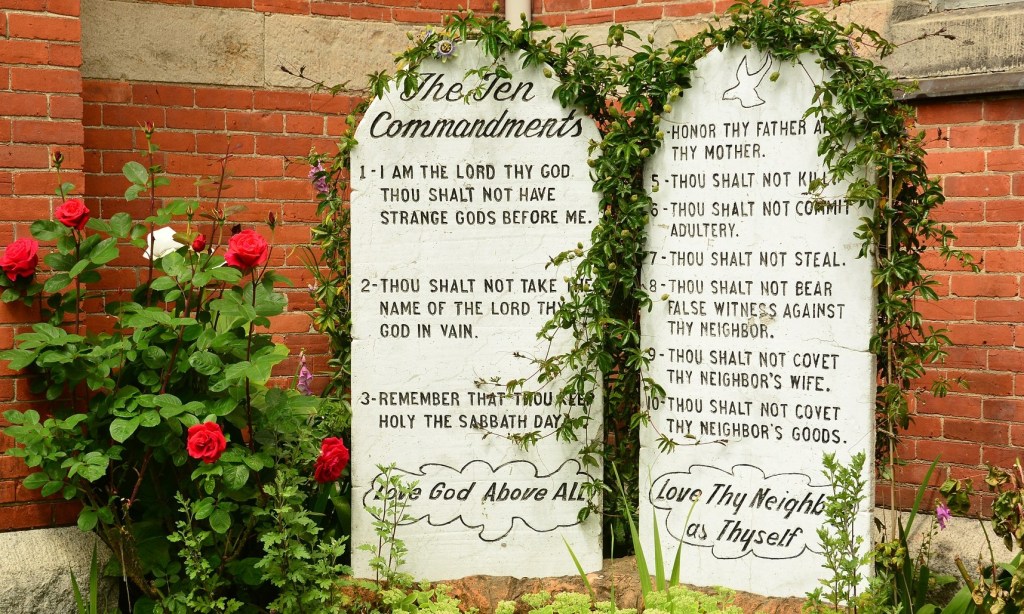







 came to me and told me he wanted a Cadillac. He specified all the details, how much he would pay for it, and wanted me to order it so I could “get in on the blessing.” When I said I could get it for him but that it would cost him approximately $8,000 more, he laughed and said, “I told Jesus what I want; and because of my faith, I’ll get it.” Walking away, he said he would offer the blessing (of getting it for him) to someone else.
came to me and told me he wanted a Cadillac. He specified all the details, how much he would pay for it, and wanted me to order it so I could “get in on the blessing.” When I said I could get it for him but that it would cost him approximately $8,000 more, he laughed and said, “I told Jesus what I want; and because of my faith, I’ll get it.” Walking away, he said he would offer the blessing (of getting it for him) to someone else. between man and God that was placed there when Adam sinned. But although Jesus taught us to be servants to each other, Almighty God is not our servant.
between man and God that was placed there when Adam sinned. But although Jesus taught us to be servants to each other, Almighty God is not our servant. what He has asked us to do.
what He has asked us to do. and step-dad in Pagosa Springs, Colorado where they owned a cabin on Pagosa Lake. Charles and I had become life-long friends and we enjoy fishing together. (My mother-in-law has since graduated to heaven, and the cabin was sold.)
and step-dad in Pagosa Springs, Colorado where they owned a cabin on Pagosa Lake. Charles and I had become life-long friends and we enjoy fishing together. (My mother-in-law has since graduated to heaven, and the cabin was sold.) his limit every time. He said, “I know what’s out here, and the way your pole bent over, that was a 20-incher. Reel in your line.” When I found the end of the line, the lure was gone.
his limit every time. He said, “I know what’s out here, and the way your pole bent over, that was a 20-incher. Reel in your line.” When I found the end of the line, the lure was gone.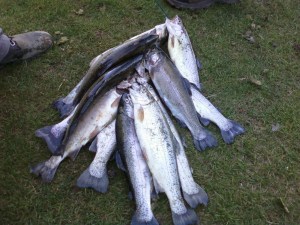 We proceeded to fish for an hour, and each of us and several friends caught our limit of three Rainbow trout. The two 17-inchers I caught put up a fuss and took a minute or two to bring in. And yes, the drag function worked properly. But an 18-incher put up a fight! Taking almost three minutes to reel it in, I was grateful that Frank set the tension for me. Back at the cabin, Carol cooked the big one like a salmon, and it was GOOD! The left-overs were made into trout-fish sandwiches which tasted much better than tuna-fish.
We proceeded to fish for an hour, and each of us and several friends caught our limit of three Rainbow trout. The two 17-inchers I caught put up a fuss and took a minute or two to bring in. And yes, the drag function worked properly. But an 18-incher put up a fight! Taking almost three minutes to reel it in, I was grateful that Frank set the tension for me. Back at the cabin, Carol cooked the big one like a salmon, and it was GOOD! The left-overs were made into trout-fish sandwiches which tasted much better than tuna-fish. This episode in the garage reminded me of another reptilian visit in New Mexico back in 1993. When it tried to hide, it reminded me that many people think they can hide from God, and I wrote a poem about it.
This episode in the garage reminded me of another reptilian visit in New Mexico back in 1993. When it tried to hide, it reminded me that many people think they can hide from God, and I wrote a poem about it. always be transparent to God and to others. I will never hide my faith in Jesus, and I will never hide who I am in Christ. I want to safely rest in the palm of His hands.
always be transparent to God and to others. I will never hide my faith in Jesus, and I will never hide who I am in Christ. I want to safely rest in the palm of His hands.